While travelling to cities around the world naturally exposes people to a variety of brands, Bolt is one that truly stands out from the crowd. Founded in 2013, the recognisable green logo can be seen on bikes, scooters, and cars worldwide – whether it’s helping someone get from A to B, delivering groceries to homes and offices, or carsharing with friends.
Bolt’s journey so far has been one of rapid and hugely successful growth.
Starting as a small company in Estonia, the urban mobility company has since expanded across 500 cities and is now present in over 50 different countries within Europe, Africa, Asia, and Latin America.
There are now more than 4,000 employees located across these different regions.
Naturally, this means that the company’s compensation strategy has had to evolve to keep up with the pace of growth.
We spoke with Evert Kraav, Senior Compensation Manager at Bolt about the transition from a straightforward approach to compensation to a more sophisticated, multi-location strategy that needed real-time data to stay competitive.
Before Ravio: How Bolt’s compensation strategy has evolved
Despite Bolt’s rapid growth from small startup to global enterprise, a core tenet in Bolt's operating principles has always been to maintain agility and efficiency in every aspect of their business – compensation included.
“We’ve always aimed to start with what’s essential and then build on that as we move forward,” says Evert Kraav, Senior Compensation Manager at Bolt.
“This philosophy extends to our compensation and benefits packages as well. We make sure we offer what’s necessary to remain competitive and fair, without overcomplicating things.”
Historically, this kept compensation at Bolt a relatively simple process.
“We started in Estonia. We had a small team that had the tools and knowledge to determine what compensation should be in Estonia, and this acted as our guiding benchmark,” explains Evert. “We used this knowledge to know if specific countries would be higher or lower than Estonia, and applied cost of living adjustments.”
However, as Bolt expanded across more cities and countries, the complexity of their compensation structure increased. With more roles needed in new locations, the team was in need of a more robust salary data provider.
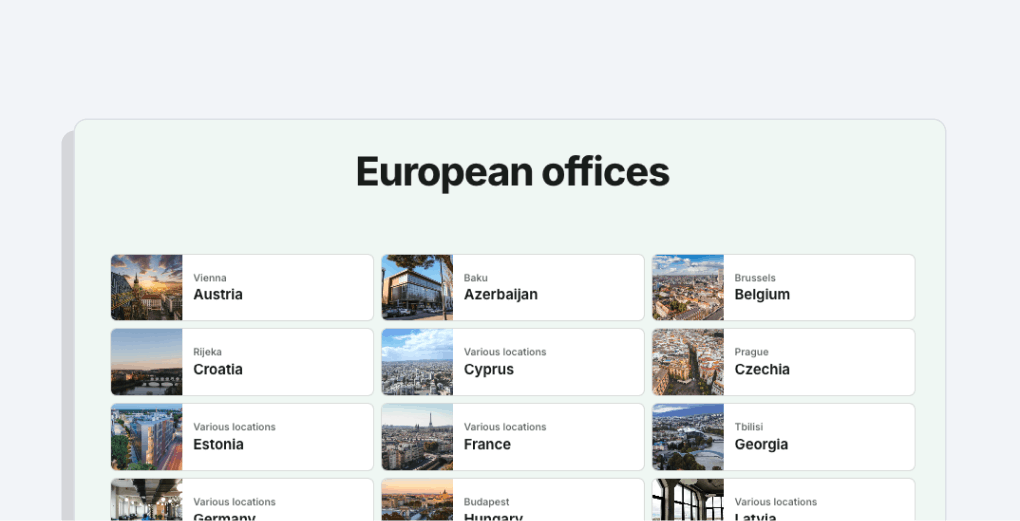
A selection of Bolt's office locations in Europe
“When the company started to grow into the thousands, we hired a specific Total Rewards team to manage compensation in-house. We engaged in traditional salary surveys so we could start benchmarking for each location separately.”
And for the most part, this has worked well for Bolt. It’s how they’ve managed compensation for the last two to three years.
But it’s not been without its limitations. Juggling several data providers and filling in salary surveys has been time-intensive for Evert and his team, especially with an employee base exceeding 4,000.
“The trouble with using different survey providers is that they have different levels of popularity and coverage,” says Evert. “It means that even if you use a provider with global access, you will always need to use additional providers for certain locations – especially in countries like South Africa, Ghana, Nigeria, Thailand and Azerbaijan.”
This can be detrimental for trusting the data too.
“Ideally we want to get the data from a few service providers globally, like Ravio, to keep the process simple and comparable between locations. It’s hard to convince the business to use certain salary ranges when you know the data comes from six different sources.”
Why Bolt adopted Ravio as an additional compensation benchmarking data source
As Bolt continued to scale and mature in size, Evert and his team needed to button up their compensation management process even further.
This meant ensuring further accuracy behind the benchmarks they sourced, comparing themselves against relevant tech companies in the market, and keeping a pulse on compensation trends beyond one or two surveys per year.
Ravio was a top choice for Bolt, and Evert and his team engaged Ravio because of five core reasons:
- Access to a more relevant dataset
- Staying ahead with real-time market trends
- Saving time with an automated compensation process
- Increased accuracy and trust through real-time benchmarking data
- A cost-efficient, smarter option for a scaling enterprise
1. Access to a more relevant dataset
One of the critical challenges Bolt faced with salary surveys was finding reliable compensation data for their non-technical roles, particularly for people in operational and regulatory roles. Both of these functions were essential for Bolt’s daily business but weren’t as widely covered by traditional survey providers for the countries they needed.
“The backbone of our company has been software engineering from the start,” Evert explains. “For those roles, it’s relatively easy to get benchmarks no matter which country you’re in. But as we began hiring more people into operational roles – to manage the day-to-day business activities – we needed to have a more sophisticated understanding of the right benchmarks.”
This was because these types of roles often exist in similar companies to Bolt, that are often much smaller in size. These earlier-stage companies in start-up or scale-up phases don’t often participate in traditional salary surveys, which presented a problem for Bolt, as they wanted to assess benchmarks against them.
“Usually, what we find in the big surveys is that larger companies are the only ones to participate, rather than the smaller tech companies that might be more relevant to us,” explains Evert.
This is when Bolt started to look on the market for an additional compensation management software tool. With Ravio, Bolt was able to filter for data from companies that mirrored their own structure and growth trajectory – all in real-time.
“Ravio has attracted this crowd of scale-up tech companies, which enables us to then benchmark ourselves against them and make more accurate comparisons.”

Senior Compensation Manager at Bolt
For Evert, having a more relevant dataset to compare against also helps in building trust around the data with managers – something that has historically been a huge problem for compensation teams.
“If managers see that there are big audit companies in there, or technology companies in the dataset, then that’s a great sign,” says Evert. “But if there is banking or manufacturing or similar companies that are not relevant to us, then they can get very sceptical about the benchmarks and ultimately the tool we are using.
“As long as I can show and explain that the data is relevant to us, then that’s the main factor that managers care about in their effort to adequately compensate employees.”
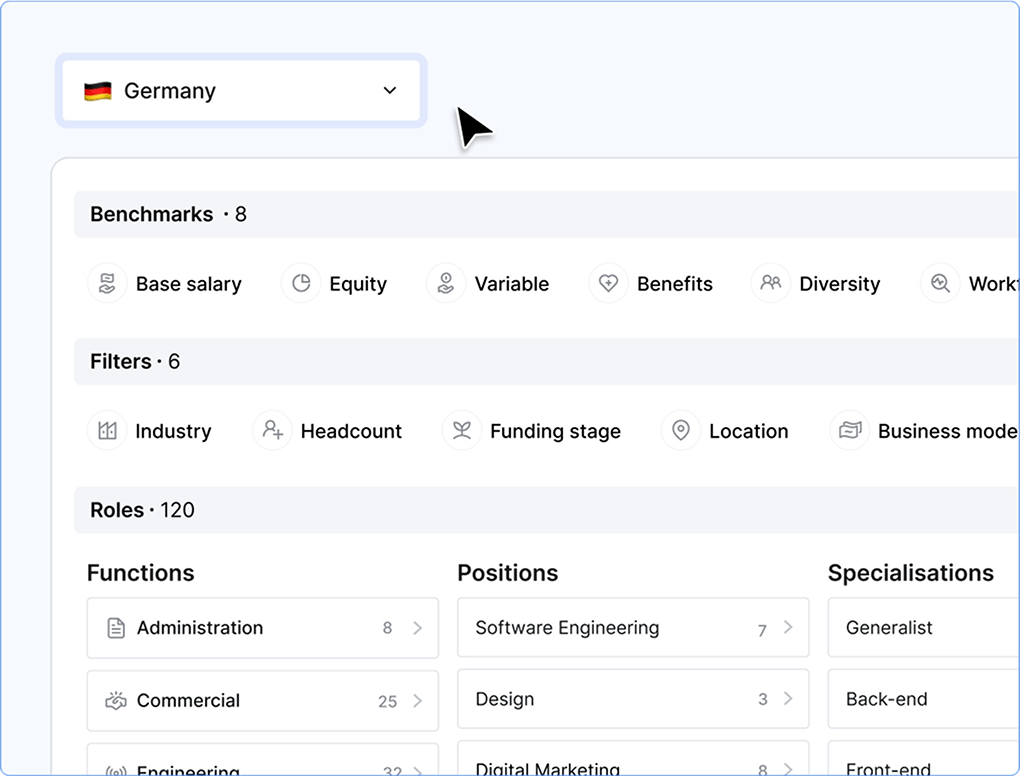
2. Staying ahead with real-time market trends
In addition to better relevance for benchmarking data, Evert and his team wanted a way to keep a more consistent eye on market trends. For a company of Bolt’s size, the once or twice-per-year cadence of salary survey providers simply wasn’t enough.
“Traditionally, the survey providers launch once per year, and everything that happens after that date isn’t available until the following year,” explains Evert Kraav, Senior Compensation Manager at Bolt.
“What I love about Ravio is the ability to add new countries and companies as you go along. With a live benchmarking dataset, you are able to build and track what’s going on in the market.”

Senior Compensation Manager at Bolt
This is especially helpful for Bolt when it comes to keeping tabs on some of the smaller countries they operate in.
“Especially in some of the smaller countries we operate in, if something happens in the market, companies in these countries tend to be very reactive. I love that we can see the impact of these big swings immediately in the dataset.”
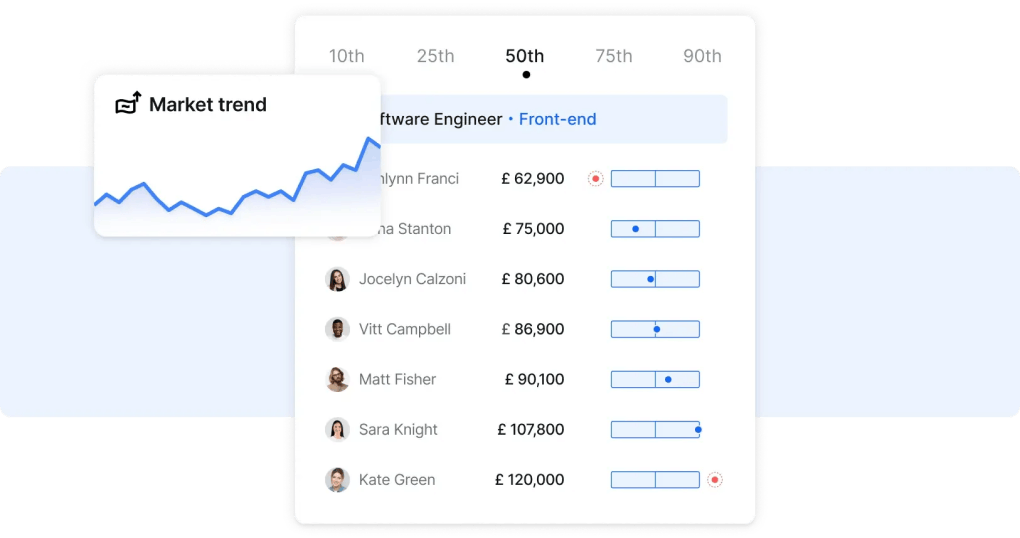
3. Saving time with an automated compensation process
A third reason Bolt engaged Ravio for the compensation management process was a simple but hugely impactful one: time.
For Evert Kraav, Senior Compensation Manager at Bolt, filling in long salary surveys only to have to wait for a long time and then get out-of-date data was proving tedious.
“Once you fill in the survey, you get back the validation files and a bunch of questions. It’s a lot of work,” says Evert.
For Evert and his team, this also means wading through multiple Excel spreadsheets for different countries, filtering and skipping irrelevant data, and converting each provider’s job levelling to their own.
“If you work in compensation, then there are only so many times you want to fill in surveys and questionnaires. For someone to take that task away is a huge benefit.”

Senior Compensation Manager at Bolt
“With one survey provider, I might get an Excel file with 150+ different columns to fill in. With another, I will need to fill in an Excel file for each country, even if we only use them for a certain region,” says Evert. “It’s an inconvenient and highly rigid process”
“Because most providers also have their own job levelling and job families structure, it’s a huge effort to then convert ours to theirs. It requires keeping up with all the changes they might have implemented during a year.”
With Ravio, Bolt was able to connect their HRIS and map their level framework once, and then gain access to real-time data accessible at any time.
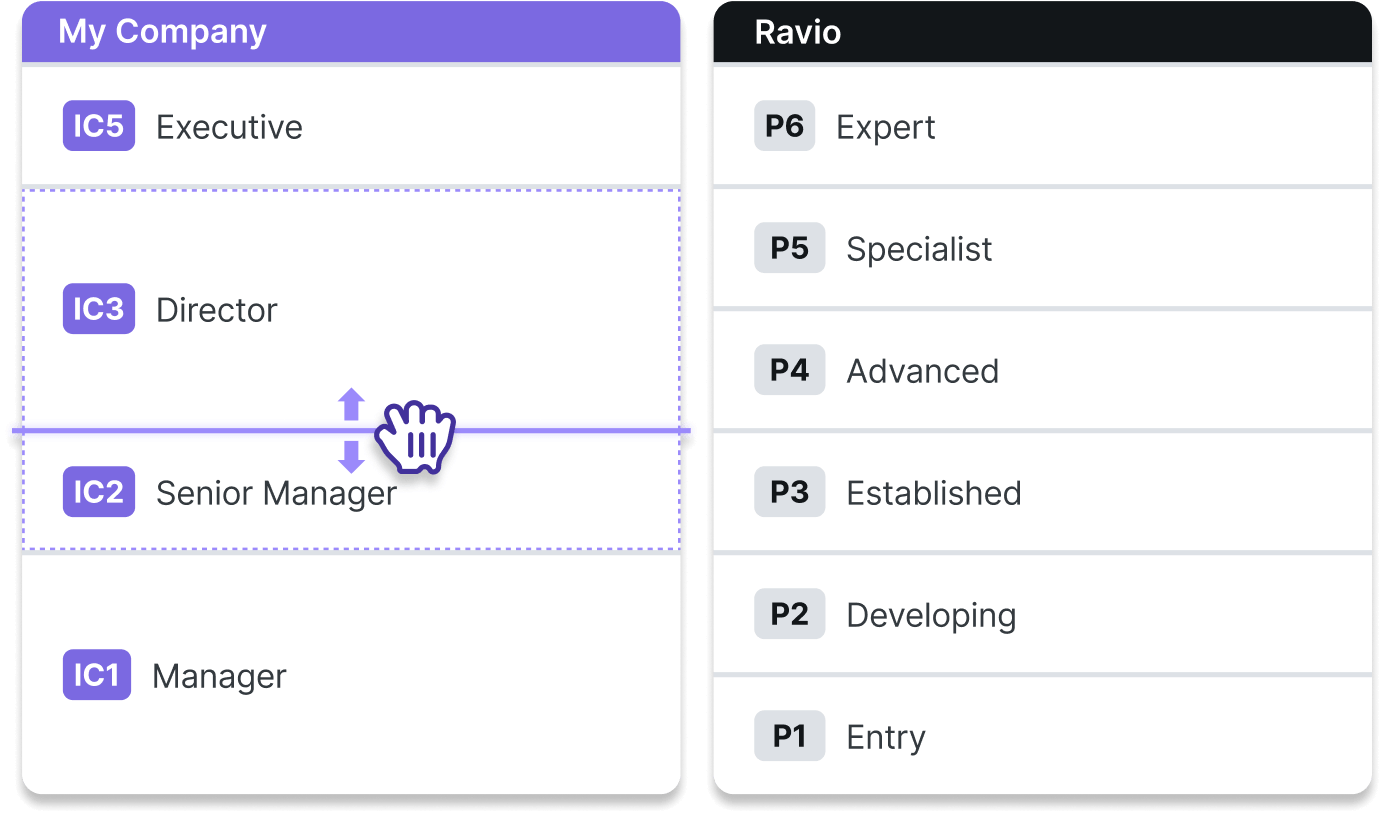
4. Increased accuracy and trust through real-time benchmarking data
One of the key factors for Evert was ensuring that the data they were using accurately reflected the reality of their market – especially in Eastern Europe.
For companies that engage in local salary surveys, it can be quite frustrating that there is a different methodology applied to the data for different locations. When this happens, compensation and benefits teams often have to do work to understand how that methodology converts to the system they are using.
For Evert Kraav, Senior Compensation Manager at Bolt, this is a situation that was all too familiar, so when Ravio launched Estonian compensation data it was a huge benefit for Bolt.
“We compared Ravio data with the local surveys, and what I know and what I saw immediately confirmed what we have heard from our employees, managers, and from similar companies,” explains Evert.
“The numbers in the Ravio platform are more accurate to what we believe is our market, and it confirmed that we need to make some adjustments to our salary structures as well.”
Having reliable, real-time data in the regions where Bolt needs helped to really increase the trust they have in the benchmarks.
“We don’t have to worry about expired or old data or how we should age it. Those questions go out of the window now that we have Ravio.”

Senior Compensation Manager at Bolt
5. A cost-efficient, smarter solution for a scaling enterprise
For companies like Bolt, which has employees across many different locations, leveraging salary surveys can quickly become an expensive cost for the company.
“For other providers, you often have to pay separately for each country. But if we only have 15-20 people in those countries, then it doesn’t make sense for Bolt to buy a survey that costs up to €5,000,” explains Evert.
“The budget that the People team spends is distributed to the specific country or department that benefits from it. So if a survey costs €4,000 for a country where Bolt has 1,000 employees, the cost per FTE is only €4. But if I want to do the same for a country where we only have 25 people, the cost per FTE rockets up to €160 – which is a lot harder to rationalise.”
With Ravio’s salary benchmarking software, Bolt could pay according to headcount, regardless of location.
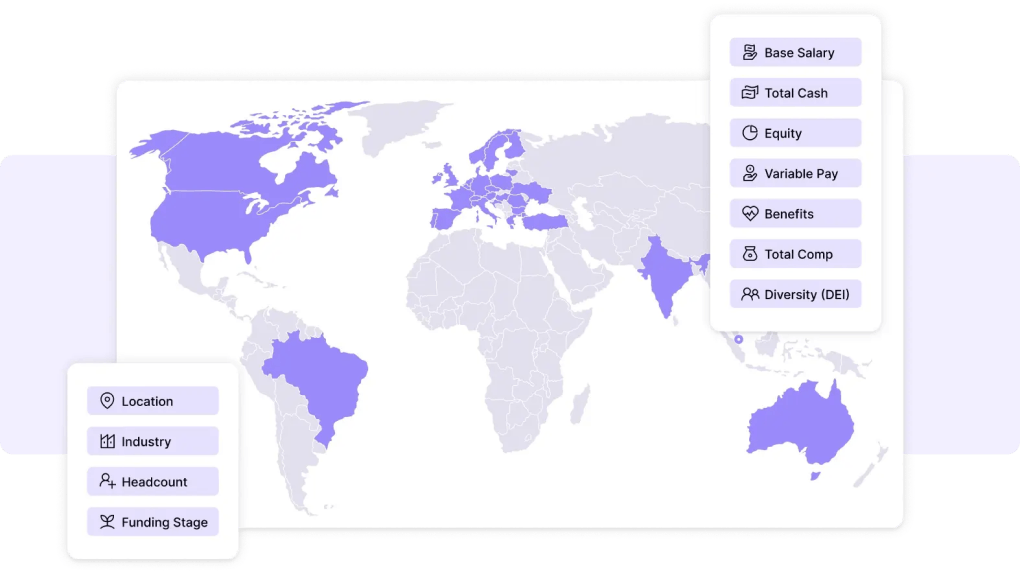
This was especially helpful because they have clusters of employees in hubs in Estonia, Poland, and Romania, but then the rest of the employee base is scattered across Europe.
“Having the ability to pay per FTE, regardless of where they are based, makes it much easier to get this cost approved,” says Evert.
Plus, Ravio’s global reach also helps Bolt with their future growth plans too, because their subscription gives them access to compensation data for countries they’re looking at for future expansions.
“With Ravio, we can get access to countries where we don’t have people yet. It means I can then also give reliable insights to teams responsible for expansions.”

Senior Compensation Manager at Bolt
Overall, with Ravio’s real-time benchmarking, Bolt is equipped to stay competitive in diverse markets, offer fair compensation across regions, and respond quickly to industry changes.



